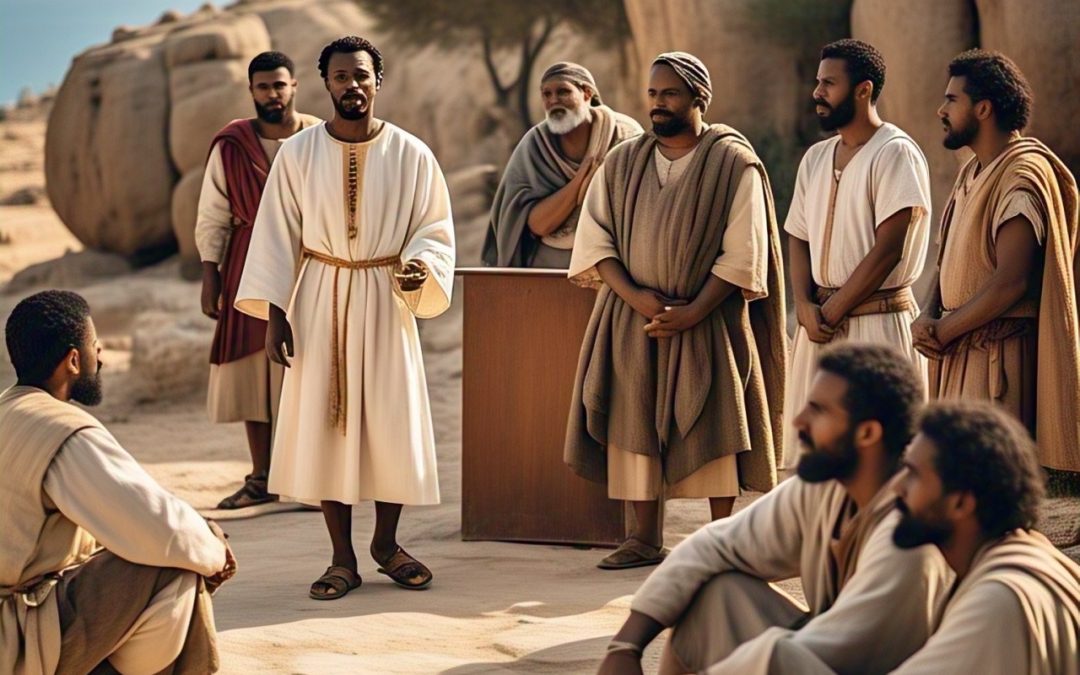Throughout Scripture, displacement emerges as a recurring motif. Far from being incidental, these experiences of forced migration, exile, and refugee status reveal truths about God’s character and commitment to the dislocated.
The biblical story begins with displacement—Adam and Eve expelled from Eden—and continues with Abraham’s call to leave his homeland for an unknown destination. Abraham’s identity as a “wandering Aramean” (Deuteronomy 26:5) establishes a pattern where divine purpose unfolds through geographic dislocation. His journey reminds us that displacement, while disorienting, can be the very context where divine promises take root.
Israel’s formative experience as slaves in Egypt further deepens this theme. God explicitly identifies with their displaced condition: “I have surely seen the affliction of my people… and have heard their cry” (Exodus 3:7). This divine attentiveness to the suffering of the displaced becomes a cornerstone of Israel’s understanding of God. The exodus narrative teaches that God not only sees displacement but actively intervenes to bring liberation and restoration.
The Babylonian exile represents another pivotal moment of displacement. Through prophets like Jeremiah, God instructs the exiles to “seek the welfare of the city where I have sent you” (Jeremiah 29:7) while simultaneously promising eventual return. This tension between present engagement and future restoration offers wisdom for navigating prolonged displacement with both realistic acceptance and enduring hope.
The Gospel narratives continue this theme when the infant Jesus becomes a refugee in Egypt, fleeing Herod’s violence. Matthew’s account deliberately connects Jesus to Israel’s exodus, suggesting that in Christ, God not only accompanies the displaced but becomes displaced. The incarnation itself represents divine solidarity with human dislocation.
Early Christians, described as “strangers and exiles on the earth” (Hebrews 11:13), transformed their experience of displacement into a theological identity. They understood themselves as citizens of a heavenly kingdom whose values often placed them at odds with dominant culture. Their displacement became not just a circumstance to endure but a witness to an alternative social reality.
These biblical narratives offer comfort and orientation for the displaced today. They reveal a God who consistently accompanies the uprooted, validates their suffering, promises restoration, and transforms displacement into the very soil where new communities and identities can flourish. In a world where displacement continues to define millions of lives, these ancient stories speak with renewed relevance and hope.
Prayer
God of Abraham, Moses, and Jesus, You who have witnessed every forced journey and heard every exile’s cry, we bring before You the displaced peoples of our world.
For those torn from their homelands by violence, persecution, and disaster, be as You were for Israel in Egypt, the God who sees affliction and hears suffering. For families crossing borders with nothing but hope and heartache, be as You were for the infant Jesus, providing refuge and protection in strange lands.
When displacement breeds despair, remind Your people that You travel with them. When borders seem impenetrable, recall for us how You have always made ways through wilderness. When the journey feels endless, whisper the promise of restoration that You spoke through the prophets.
Grant to the displaced not just survival but flourishing, not just tolerance but welcome, not just assistance but justice.
Give wisdom to those in places of temporary refuge, as You counseled the exiles in Babylon, to seek the welfare of the places where they dwell while holding their hope of return.
Remind Your church of our identity as strangers and pilgrims, that we might recognize Christ in the face of every displaced person, and build communities where the uprooted can find belonging.
Until that day when all can dwell securely under their own vines and fig trees, be the constant companion of those who journey far from home.
In the name of Jesus, who had nowhere to lay His head.
Amen.


Recent Comments